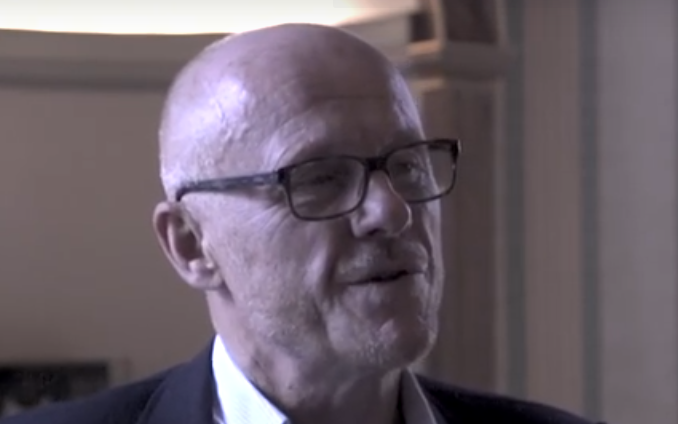Revealed: A handful of billionaires control a staggering share of UK media
The data shows that the rise in digital media is only marginally counterbalancing the fact that the overwhelming majority of UK media is controlled by a handful of owners.

Three billionaire families control nearly 70% of the national newspaper industry, the latest estimate has shown. An analysis by the Press Gazette has revealed that the Murdochs, Barclays and Rothermeres control 68% of the UK national press.
The top three companies currently control a staggering 80% of the national newspaper circulation. The ownership oligopoly of DMG Media Ltd, News UK and Reach Plc has substantially increased from their 71% share in 2015.
DMG’s publications include the Daily Mail and the i paper, while Murdoch’s News UK publishes the Sun and both the Times and Sunday Times. The Sunday Mail meanwhile is under the control of Reach, which is also behind the Daily Mirror and Daily Express.
The estimate was based on imputed values News UK, JPIMedia, City A.M. and Telegraph Media Group publications as the publishers no longer share their circulation figures.
In contrast, the field of digital media is significantly less top heavy in terms of ownership concentration. However, legacy brands still dominate over native digital new sites, making up 17 of the top 20 UK digital news publishers.
Reach Plc whose websites include the Mirror Online and a plethora of regional news providers is on top of the list with 42million unique monthly visitors in September this year. This is closely followed by the BBC with 39million, and MailOnline and Metro owner DMG Media with 39million.
While billionaire dominance is not as pronounced as in print media, the Rothermeres, Murdochs and Lebedevs still control three of the top five digital news publishers.
In the magazine industry, the Bauer, Hearst and Burda families own the three largest publishers and control an estimated 31% of circulation, based on analysis of 2019 datas. But charities also own a significant chunk of the magazine market. Titles by RSPB, National Trust and Royal Horticultural Society have a combined circulation of over 3.7 million, or 11% of total circulation.
The data shows that the rise in digital media is only marginally counterbalancing the fact that the overwhelming majority of UK media is controlled by a handful of owners.
Sophia Dourou is a freelance journalist
Prem Sikka: Billionaires are a threat to democracy
Billionaires are using their wealth to subvert democracy

Taxation revenues are the basis of the modern state. Without them, it cannot perform its administrative and redistributive functions.
The revenues are also used to subsidise industries, bailout banks and clean-up the social and environmental damage inflicted by businesses in pursuit of private profits.
The level of taxation depends on the social settlement mandated to the state through the ballot-box. It can be changed by citizens.
Some wealthy elites resent making financial contributions towards the maintenance of social infrastructure and advancement of welfare rights even though healthcare, education, transport, security and other services enable their businesses to make substantial profits.
A good example of this is the statement by John Caudwell, the billionaire founder of Phones4u.
Caudwell said that he would leave the UK if the next Labour government introduced a wealth tax or higher marginal rates of income tax.
He said he will migrate to “and live in the south of France or Monaco”, though he would continue to profit from businesses in the UK.
In 2014, Phones4u and related companies entered administration. As of 13 February 2019, unsecured creditors for the group of companies were owed £1.7bn and are likely to receive negligible amounts.
This figure includes £69m owed to the government’s tax collector HMRC. That loss has been borne by taxpayers.
What about Caudwell’s love for paying taxes which after all enabled his business empire to enrich him?
Caudwell and his business empire used novel tax avoidance schemes. In the 1990s, Caudwell and fellow directors “paid themselves mostly in gold bars and fine wine. The aim was to avoid National Insurance contributions”. This loophole was closed in 1997.
Caudwell looked for other ways of reducing his tax bills and a scheme was devised by Ernst & Young, auditors to Phones4u.
Under the scheme, businesses controlled by Caudwell made payments into an Employee Benefit Trust scheme in Jersey for the benefit of executives, including Caudwell and other directors, who received tax-free loans from the trust.
The payments were instead of salary or bonuses. The companies obtained immediate corporation tax relief on the money while directors avoided income tax and National Insurance contributions.
The scheme was contested by HMRC and the case eventually went to the House of Lords and was declared to be unlawful.
The expert opinion was that this judgment alone may have required Caudwell to pay £13m in taxes and penalties, and his businesses may have faced liabilities of £1.5bn in tax and interest.
Caudwell wants to be loved by people and says that he pays his taxes and will give away his fortune to charities, but this does not stop him from threatening people from making their democratic choices.
Fellow millionaire Lord Alan Sugar has also threatened to leave the UK if the next Labour government levies higher taxes on the rich.
Of course, before leaving they should return all public subsidies, loans and debts, pay taxes and make good environmental and social damage done by their intoxication to private wealth, status and power.
These wealthy elites are not campaigning for higher wages, an end to austerity, foodbanks or inequalities.
They have campaigned and secured tax cuts for corporations and reduction in the highest marginal rate of income tax for the rich from 50% to 45%, on incomes above £150,000 a year.
They are silent on the inequities of the present system which requires the poorest members of society to pay a higher proportion of their income in taxes compared to the richest.
The data published by the Office for National Statistics shows that the poorest 20% of households pay 29.7% of their income in indirect taxes and 12.7% in direct taxes. So they pay-a total of 42.4%.
On the other hand, the richest 20% pay 14.6% in indirect and 23.2% in direct taxes. This is a total of 37.8%.
So the rich are giving a smaller percentage of their income than the poor.
The class wars fought by the elites have left ordinary people with a stark choice – either pay more for a crumbling social infrastructure or give up their hard-won social rights, whilst billionaires heave their wealth about in tax havens.
The message from wealthy elites is that people can have any government they wish as long as it is the one that Caudwell, Sugar and their billionaire friends approve.
Put another way, people can mandate a government through the ballot-box but wealthy elites want to have the power to exercise the ultimate veto by withholding or dodging taxes and therefore ensuring that the government cannot deliver its electoral promises and improve welfare of the ordinary people.
If government are poor at delivering mandated redistribution and social infrastructure, then citizens can discipline those governments by kicking them out of office.
There is something very disturbing in that billionaires think that it is somehow their birth right to override citizen choices and discipline governments by threatening tax revenues.
Prem Sikka is a Professor of Accounting at University of Sheffield, and Emeritus Professor of Accounting at University of Essex. He is a Contributing Editor for Left Foot Forward and tweets here.
100,000 pupils’ education overseen by a handful of rich me
Huge powers over the education of thousands are in the hands of just a few wealthy men.

Evidence released today by Education Uncovered, shows that nearly 200 state-funded schools in England are now controlled by rich philanthropists.
The use of academies – started under Tony Blair, but vastly expanded under the coalition – means that controlling sponsors have a vast array of powers and little to no oversight from parents, teachers, pupils or local government.
Analysis of ten trusts – who are all run by men and between them educate over 113,000 pupils – shows how these sponsors are ultimately in charge. Through scrutiny of their constitution and accounts, Education Uncovered revealed that they have a huge say over the appointment of trustees. These, in turn, set the overall strategy for a school – including the curriculum. They also hold the management to account.
Mary Bousted, joint general secretary of the National Education Union, said: “The academies project has always been in the interests of the few, not the many. It has resulted in a fractured and confusing schools landscape, and a Wild West for those who wish to exploit it. Today’s research shows that the altruism and vocation of teachers is rarely reflected at the top of academy trusts.
“There is a great deal at stake for education in this General Election. Voters must look at this research and ask themselves in whose interests schools should be run. At a critical time in our history, this is an opportunity for us to change course as a country and vote for education.”
Examples of these business leaders include Lord Harris of Peckham, whose family are in charge of 48 state-funded academies educating 32,500 pupil. The constitution of the trust gives him the right to appoint up to 32 trustees.
Also the co-founders of the hedge fund firm Marshall Wace, who, alongside former Conservative treasurer Lord Fink, form three-quarters of the directors of a charity which is in charge of another London-based chain, Ark Schools. This has 38 schools and 26,000 students.
No comments:
Post a Comment